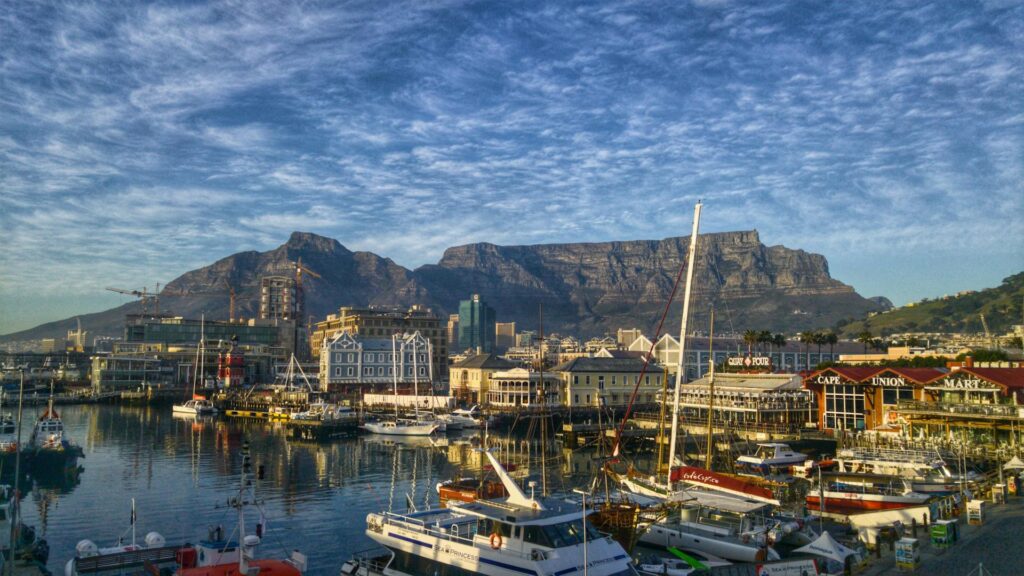
In today’s surging wave of globalization, international trade is becoming increasingly frequent. South Africa, as a market with vibrant economic activity on the African continent, attracts numerous enterprises to engage in business there. For those merchants involved in the South African market, the freight transportation link is of crucial importance. And the South Africa’s LCL DDP transportation service is increasingly becoming the preferred choice for more and more enterprises. Today, let’s take an in-depth look at this professional service that safeguards cross-border trade.
I. South Africa’s LCL DDP Transportation Service: Core Definition and Connotation
DDP is one of the international trade terms, which means that the seller bears all risks and costs of transporting the goods to the designated destination, including any taxes and duties payable when going through customs procedures at the destination. On this basis, the South Africa LCL DDP transportation service is optimized specifically for bulk cargo transportation. Bulk cargo refers to goods that are not enough to fill a whole container.
By integrating the scattered goods of numerous customers and shipping them in consolidated containers, it provides one-stop logistics solutions for enterprises of all sizes, ensuring a seamless connection from the place of shipment to the hands of South African customers. Customers only need to wait patiently for the goods to arrive at their doorsteps, without having to worry about complex transportation, customs clearance, tax payment, and other processes.
II. Wide Range of Applicable Entities, Empowering Diverse Business Subjects
Small, Medium, and Micro Foreign Trade Enterprises
These enterprises usually have limited resources and do not have professional logistics and customs declaration teams. For example, a start-up Chinese handicrafts enterprise that wants to explore the South African market has small shipment volumes each time and finds it difficult to handle the cumbersome international transportation process alone. The South Africa LCL DDP service saves them the high cost of setting up a logistics department. The enterprise only needs to focus on product research and development and market expansion, and hand over the goods to the freight forwarder. It can then ship goods as conveniently as in domestic shipments, easily break through logistics bottlenecks, and take small but steady steps to start international business.
E-commerce Sellers
With the booming development of the South African e-commerce market, numerous cross-border e-commerce sellers have set their sights on this business opportunity. Take a seller of fashionable clothing on South African e-commerce platforms as an example. Facing the characteristics of fragmented orders and high shipping frequencies, the LCL DDP service can precisely meet their needs. The rapid dual customs clearance and tax-inclusive process ensures the timely stocking of goods, enhances customer satisfaction, and avoids negative store reviews caused by logistics delays or customs clearance issues, helping sellers seize the initiative in the highly competitive e-commerce race.
Suppliers of Large Enterprise Procurement Projects
When large enterprises make project procurements in South Africa, such as construction companies purchasing building materials, their suppliers are scattered in various places and need to deliver bulk cargo to the South African construction sites on time and in compliance. The South Africa LCL DDP service relies on the powerful resource integration capabilities of freight forwarders to coordinate various transportation aspects and uniformly handle customs clearance and tax payment, ensuring that each batch of bulk cargo arrives on time, providing strong support for the smooth progress of large projects.
III. Differences between South Africa’s LCL DDP and Other Transportation Services
Comparison with Traditional Ocean Freight FOB (Free on Board)
Responsibility Division
Under FOB terms, the seller only needs to be responsible for loading the goods on board, and after the goods cross the ship’s rail, the risks and costs are transferred to the buyer. In the DDP service, however, the seller is responsible throughout the entire process until the goods reach the designated location in South Africa, with a clearer responsibility boundary and more inclined towards the seller, allowing the buyer to enjoy worry-free transportation.
Operational Convenience
In the FOB model, the buyer needs to arrange subsequent processes such as ocean freight and customs clearance at the destination port by themselves and coordinate with multiple parties such as freight forwarders and customs brokers. By adopting LCL DDP, the shipper can handle all links in one stop, and the consignee only needs to wait for the goods to arrive, greatly simplifying the operation process, reducing communication costs and the probability of errors.
Cost Transparency
The FOB quotation is relatively simple, but the buyer subsequently needs to bear uncertain expenses such as ocean freight, destination port surcharges, and taxes. DDP, on the other hand, offers an all-inclusive package price, with no hidden fees except in special circumstances, enabling enterprises to accurately budget logistics costs in advance and facilitating financial planning.
Comparison with South Africa Full Container Load Transportation
Cargo Volume Adaptability
Full container load transportation is suitable for large cargo volumes that can fill one or more containers. The LCL DDP is specially designed for bulk cargo. Even with only a few cubic meters of goods, it can be shipped flexibly, avoiding occupying a large amount of capital to rent a whole container due to insufficient cargo volume, reducing inventory pressure and capital occupation costs.
Delivery Flexibility
Full container load transportation generally can only deliver goods to the designated container yard near the port, and the consignee still needs to arrange inland transportation by themselves. The LCL DDP service can provide door-to-door delivery, reaching inland cities in South Africa, such as Johannesburg and Cape Town urban areas, directly delivering goods to customers’ warehouses or stores, achieving a truly end-to-end direct delivery.
IV. Detailed Process of South Africa’s LCL DDP Transportation Service
Order Receiving and Booking
Customers submit transportation consignments to freight forwarders, indicating information such as goods details, sender and receiver addresses, and delivery time requirements. Freight forwarders book appropriate shipping space with shipping companies based on the total volume and weight of the goods, combined with the sailing schedule, to ensure that the goods can be loaded on board on time. This process requires precise matching of the sailing schedule and the progress of cargo collection. For example, when the peak season approaches and shipping space is tight, freight forwarders can lock in space in advance through long-term cooperative relationships to ensure transportation timeliness.
Cargo Consolidation and Warehousing
Suppliers from various places deliver bulk cargo to the warehouses designated by freight forwarders. Warehouse personnel classify and store the goods according to categories, destinations, etc., make scientific container loading plans, utilize container space rationally like assembling a jigsaw puzzle, and at the same time, take measures such as moisture-proof and shock-proof to ensure the safety of the goods during storage, waiting for loading and shipment.
Customs Declaration and Shipment
The professional customs declaration teams of freight forwarders prepare detailed customs declaration documents, including commercial invoices, packing lists, bills of lading, certificates of origin, etc., and truthfully declare goods information to the customs to ensure compliant customs clearance. After the goods are inspected and released by the customs, they are loaded onto container ships on time and embark on the ocean voyage. During this period, freight forwarders track the ship’s movements in real-time and provide timely feedback to customers.
Ocean Transportation and Port Operations
During the long ocean voyage, freight forwarders continuously monitor changes in the sailing schedule and prevent unexpected situations such as bad weather and route congestion from affecting timeliness. Before the ship arrives at the South African port, they prepare customs clearance documents for the destination port in advance and closely cooperate with local agents. Once the ship docks, they promptly initiate the customs clearance process to ensure the rapid unloading of the goods.
Inland Transportation and Delivery
After customs clearance, the goods are transferred to the local inland transportation fleets in South Africa. According to the detailed addresses provided by customers, suitable vehicle models such as box trucks and flatbed trucks are used for delivery. Equipped with GPS real-time positioning, customers can query the delivery track of the goods online until the goods are safely delivered and signed for receipt.
V. Precautions for Choosing South Africa’s LCL DDP Transportation Service
Accuracy of Customs Clearance Documents
Document Preparation
Strictly prepare documents in accordance with the requirements of the South African customs. The description and value declaration of the goods on the invoice must be precise to avoid arousing customs doubts due to ambiguity. Ensure that the certificate of origin is authentic and valid and complies with the trade preference agreements granted by South Africa, which can reduce tariffs and costs.
Labeling
Some goods need to be labeled according to South African standards. For example, food products need to have a nutrition facts table, and electronic products need to have safety certification labels. Missing or incorrect labels may lead to customs clearance obstruction, so it is necessary to check carefully before shipment.
Consideration of Transportation Insurance
Although the freight forwarder bears the transportation risks in the DDP service, it is advisable for customers to purchase additional transportation insurance as a precaution. This provides protection against risks such as natural disasters, accidents, and theft that may occur during the transportation of the goods. Clearly define the scope of insurance liability and claim conditions. For example, when insuring fragile items, mark the fragile property to ensure full compensation in case of an accident.
Communication and Emergency Mechanism
Communication Timeliness
Establish an efficient communication channel. Freight forwarders and customers should exchange information in a timely manner at each stage of transportation. Customers can query the order progress at any time after placing an order. Freight forwarders should promptly notify customers in case of customs policy adjustments, sailing schedule delays, and other issues and jointly discuss countermeasures.
Emergency Handling
Freight forwarders should have a sound emergency mechanism. For example, if there is a problem with the goods during customs inspection at the South African port, they can quickly activate a contingency plan, arrange professional staff to assist in communication with the customs, submit supplementary materials, and expedite the release of the goods to minimize losses.
The South Africa LCL DDP transportation service, with its unique advantages, helps enterprises of all kinds open up the logistics channels in the South African market. When making a choice, enterprises should fully understand its applicable scenarios, differences from other services, and key points for attention. By cooperating with professional freight forwarders, they can ensure the smooth flow of goods on the international business route, fully enjoy the benefits of cross-border trade, and help enterprises set sail and achieve commercial success in the South African market.
Whether you are a newcomer to South African trade or an industry veteran with a global layout, South Africa’s LCL DDP may be the key tool for you to optimize your logistics supply chain and enhance your competitiveness, opening up a worry-free freight chapter for you.





